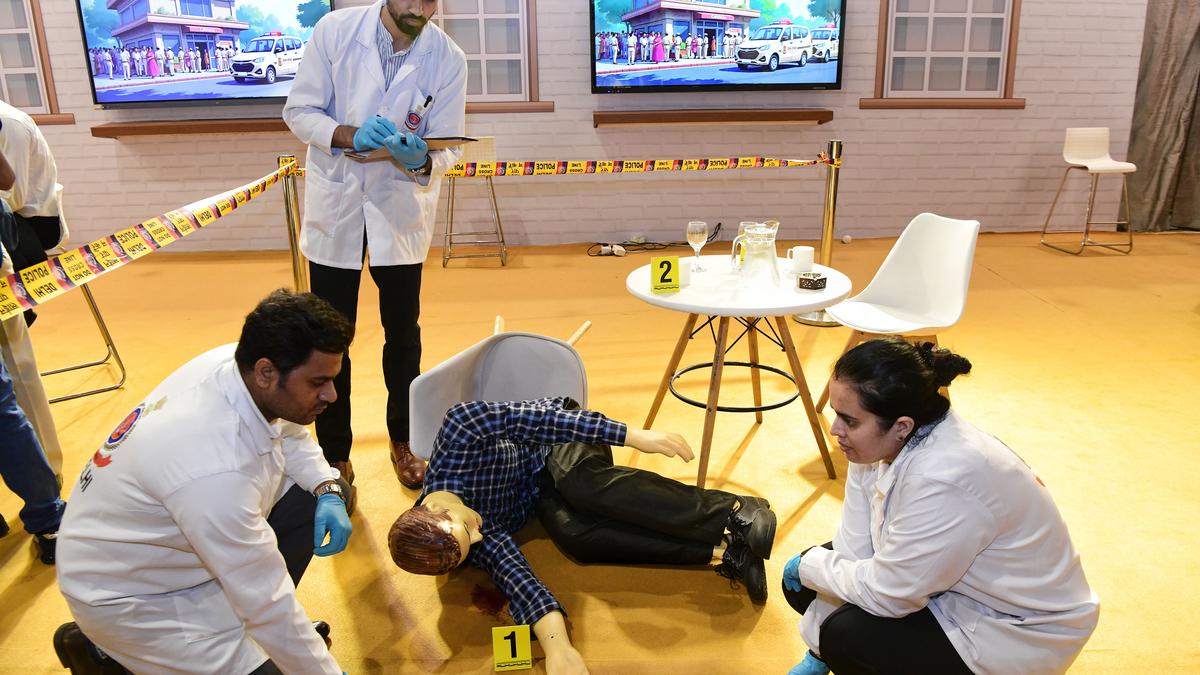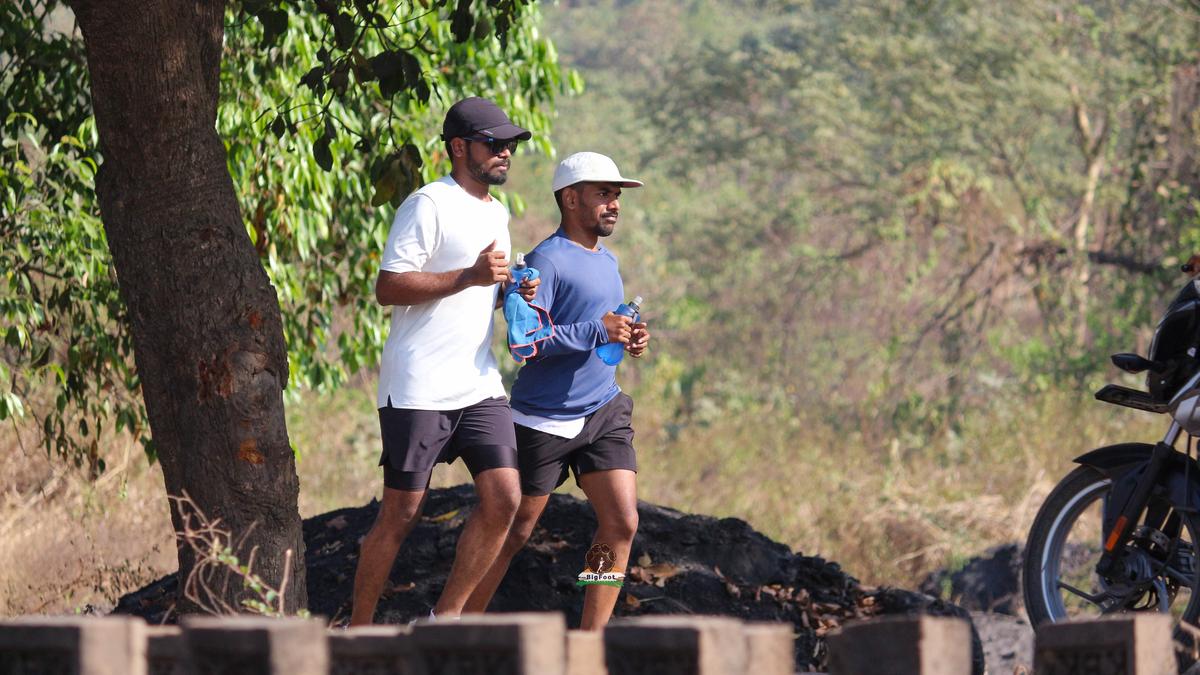
The Delhi police’s forensic science laboratory members hold a crime scene demo during an exhibition on New Criminal Laws in New Delhi.
| Photo Credit: File photo
A recent Delhi High Court order seeking authorities to frame guidelines to “avoid unnecessary” referrals to forensic science laboratories (FSLs) in the national capital has sparked a debate among investigators, lawyers, and forensic experts. The court issued the direction on July 9 while hearing a public interest litigation (PIL) filed by Subhash Vijayran, a resident doctor pursuing an M.D. in forensic medicine at Maulana Azad Medical College in Delhi.
He had raised concerns over the growing backlog at FSLs due to “indiscriminate sample submissions”.
As of mid-2025, over 20,000 forensic reports are reportedly pending at FSLs in Delhi.
The court has now asked the Centre and Delhi government to decide within three months whether formal guidelines can be drafted to address the problem.
Although the intent is to reduce clogging of the FSLs on the account of alleged “unmindful and indiscriminate references”, there is no consensus yet on whether such guidelines are practical or enforceable.
‘40% avoidable samples’
A 2023 report by the National Human Rights Commission titled ‘Forensic Science and Human Rights’ found that 30-40% of viscera analyses sent to FSLs in Delhi were “avoidable”, especially in cases such as drowning, burning, and trauma deaths. The report also stated that if the autopsy surgeon is able toestablish the cause of death, other than in cases of death by poisoning, the viscera need not be referred to the FSLs for analysis.
A senior Delhi Police official told The Hindu that the department is aware about the FSL backlog and has already taken steps to address it. “Verbal instructions have been issued to all investigating officers to avoid unnecessary referrals to FSLs, especially in cases involving viscera preservation,” he said, adding that the officers are now expected to decide on a case-by-case basis.
Dr. Vijayran said, “During my postings in various mortuaries of Delhi, I came across an unpleasant practice of many doctors wherein they indiscriminately send viscera, blood, histopathology and toxicological samples to the FSLs and other labs after post-mortems – even in the most obvious and innocuous cases.”
“No doubt, in some cases, the samples are genuinely required to be sent, but in many cases where they are not, they are still sent. In defence, doctors argue that they do not want to get into unnecessary trouble with the law, in case someone might question as to why they did not send the samples,” he explained.
Legal opinions divided
Advocate Gyanant Kumar Singh warned against rigid guidelines. “I think it should be left to the police instead of making blanket guidelines, which can be counterproductive. The guideline can never be rigid or exhaustive,” Mr. Singh said.
In contrast, advocate Prabhav Ralli emphasised that forensic evidence is central to justice, especially in grave offences like murder and sexual assault.
‘Quality of evidence’
“If the FSL reference is not done, it certainly affects the quality of the evidence as there is no scientific proof available, perhaps leaving the prosecution with only oral evidence/testimony to rely on,” Mr. Ralli said.
“In cases of reverse burden of proof, the onus to prove innocence is on the accused, and therefore, the absence of an FSL report rather dents the defence’s case,” he said.
Published – July 22, 2025 01:41 am IST



